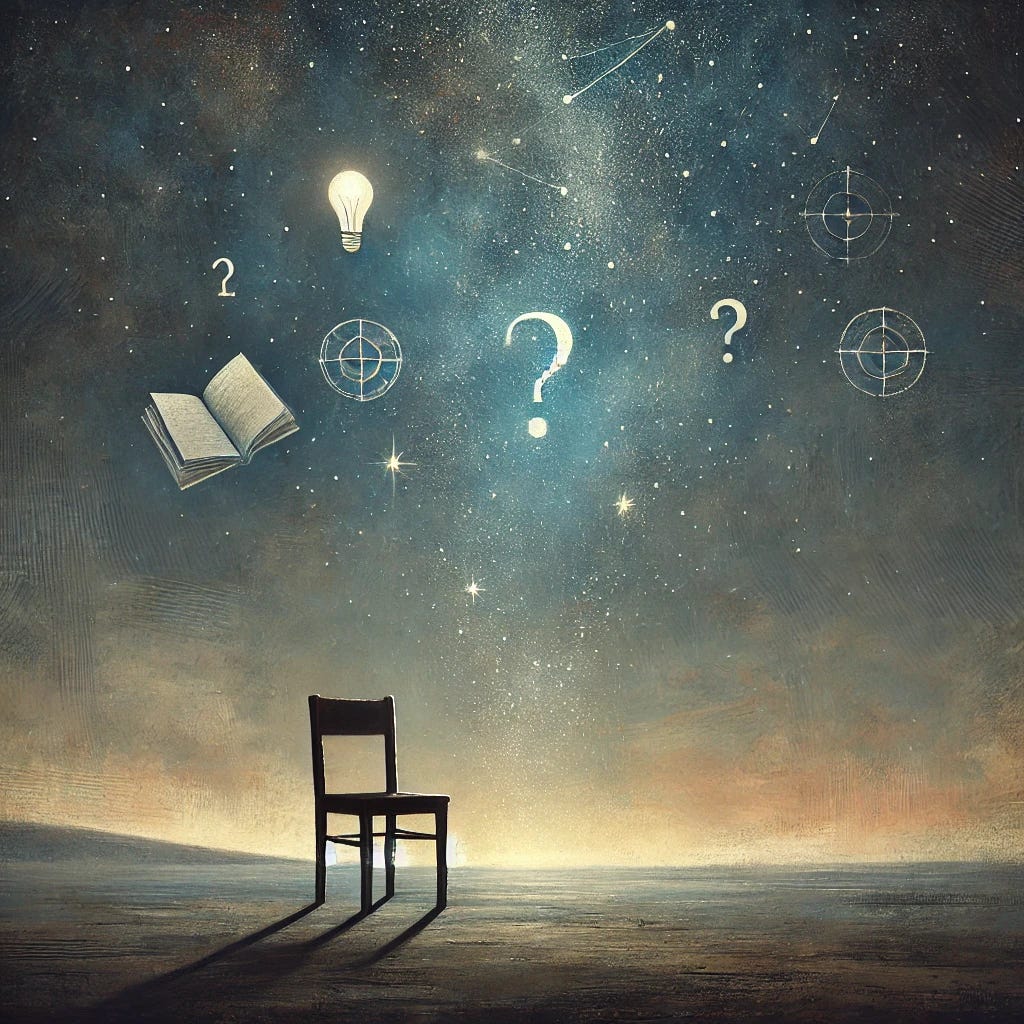Existence and Ignorance
two universals
If you’ve only been reading these scribblings for the past year or so, you’d think it was mostly a newsletter about AI and the various disruptions it’s causing. Fair enough! But what it really started out as, was a series of “letters to my younger self” about patterns I see. Some of the patterns are about engineering, but some of them are also about people, how to work together, and sometimes how to get along. I had a long period where I wrote about the value of humility in leadership roles, for example. This is going to be a throwback to that kind of letter.
People are different, difficult, strange, political, challenging things to deal with. We have so many different life experiences, skill sets, backgrounds, and so forth - it’s really hard to find common ground. Sometimes there’s almost nothing the same in two people’s lived experiences. I find it useful, then, to think about (and remind myself) about places where we do at least start from the same place, and hopefully have enough commonality to find ways to understand each other.
There are some trivial biological things that we all have in common, but they don’t help a whole lot: we all eat, breathe, sleep, and poop. It’s not a bad place to start from, for sure, that we have common physicality. But we don’t (for the most part!) have huge political differences over, say, whether or not to breathe.
But there are two things that actually drive a lot of difference, I think. The first is what I would call “the fundamental existential dilemma”. Meaning, whatever you ultimately wind up believing, each of us is thrust into the mystery of existence with the same lack of warning or explanation. You exist, and it’s precious to you, for some reason! And it will also be taken away! What do you do with that knowledge?
I think a huge amount of human activity reduces to individual answers to that question. Religions are easy answers: there’s a plan! God looks just like you! Follow the book and you’ll be ok! Lots of folks choose those, because it makes the “terror of existence” less - the problem is that if other people have a different plan, that erodes the effectiveness of this choice. Other folks have other reactions - hedonism, scientific thought, nihilism…it’s a long list.
The point isn’t to say which is right or wrong, though, it’s to have compassion about the choice: we are all confronted with this, like it or not. As the great sage said, “if you choose not to decide, you still have made a choice” - there is no escaping this, and at root, every human being is aware of, and reacting to, this fundamental dilemma we all share. Just try to remember, when dealing with someone difficult: they don’t know either.
Which brings me to the second universal truth: we all start out ignorant. It’s easy to forget this, and it’s very easy to be angry at someone who doesn’t understand something that you think is obvious (guilty), but you have to remember: everyone has to learn everything at first, too. If someone has poor reasoning skills, or can’t do critical thinking, or doesn’t understand something technical, or has poor taste, or whatever - you have to try, again, to have compassion, and remember that you didn’t know that thing either, at some point. And sometimes people go backwards! I saw someone wandering the streets recently, carrying blankets, really lost. Easy to feel angry or disgusted but I thought “that’s what a lost 8-year-old would do (this person was an adult, to be clear) if they were on the street and no one helped them”. That person has just lost something that you have - some knowledge about the world.
None of this is actually a real solution to our problems, but keeping these two things in mind - existential dilemma, and ignorance - can help with compassion. We’re all a bit lost. Some of us think they have the answers, some maybe actually do, some get lucky, some get unlucky - but at root, under the bare sky, we all have to confront the same things in life. It’s good to remember that none of us knows the answer, we are all just breathing and guessing.


Good on ya, mate.